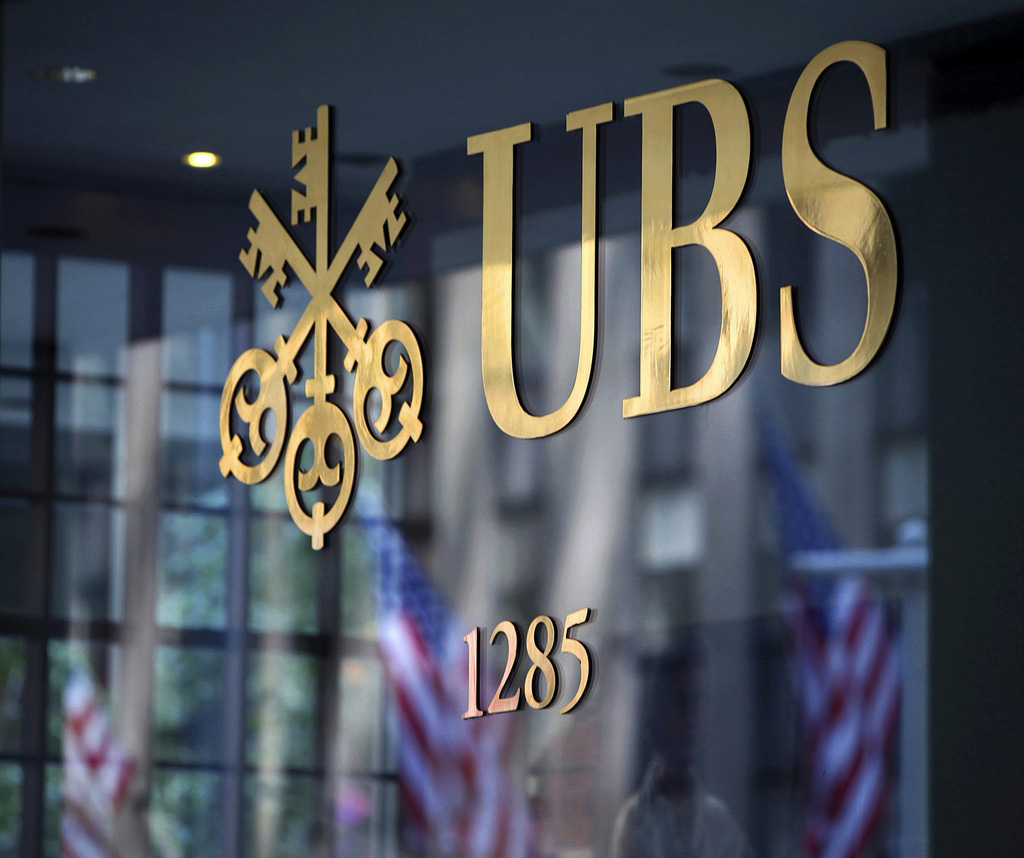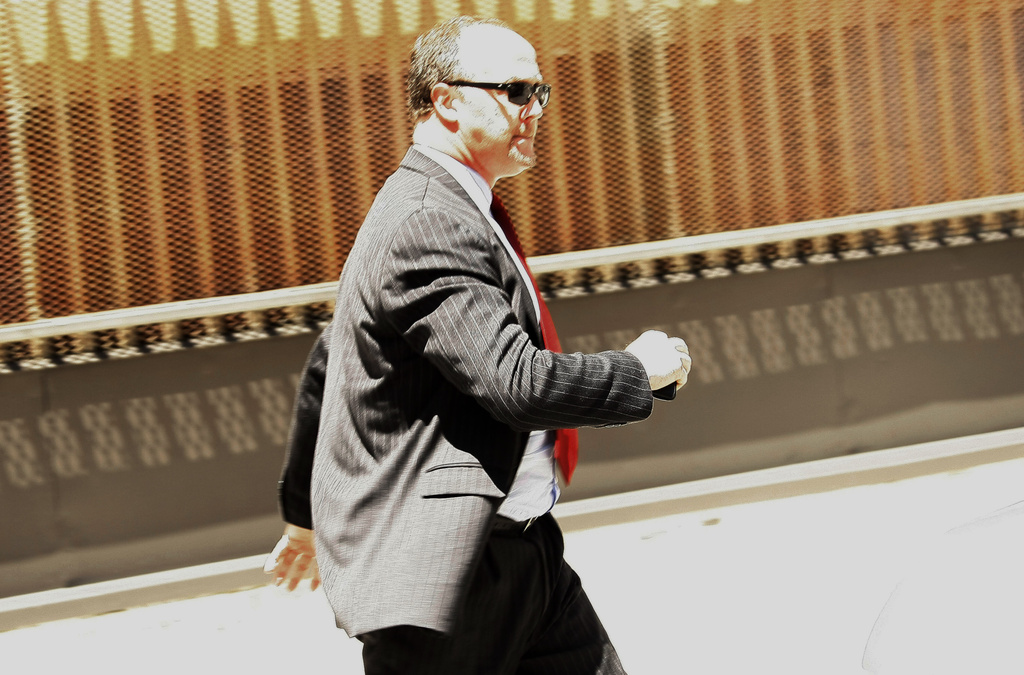House approves UBS-IRS deal with big caveat

In a make-or-break vote, Switzerland’s House of Representatives has approved a deal for big bank UBS to share confidential client data with the United States.
Parliamentarians on Tuesday voted 81-61 to approve the controversial treaty with 53 abstentions and one sizeable hiccup: they also voted 106-80 to allow a possible referendum on the matter.
The House’s decision was critical, as a “no” would have sunk the whole deal, which the government says is crucial toward maintaining a healthy economic position with one of Switzerland’s biggest trading partners.
The treaty, which was earlier rejected by the House but passed by the Senate, aims to give US authorities bank data on some 4,450 accounts held by Americans. The US Internal Revenue Service (IRS) believes those accounts hold assets deliberately hidden away from US tax collectors.
Both chambers of parliament now have until Friday to reconcile differences over whether the matter should go to a nationwide vote. A green light from both the Senate and the House of Representatives is needed to put the contract into force and hand over the information.
Politics at play
After months of lobbying against the deal, Switzerland’s largest political party, the rightwing Swiss People’s Party, signalled its support after having received assurances from centre-right parliamentarians that they would vote against proposed new taxes and measures for banks and other large companies.
The Senate has already approved two motions to limit banker bonuses but parliament buried a government-proposed roadmap billed as a way to prevent banks that are “too big to fail” from needing bailouts in the future.
UBS needed a rescue package after suffering massive losses in the US subprime mortgage crisis. Proposed steps included a tax on “excessive” banker bonuses of SFr2 million ($1.75 million) or more, as well as new rules on how banks allocate risks and maintain cash reserves.
Lawmakers instead bit back at ministers and voted to limit how much the government can agree to do in international treaties.
Far from over
Rightwing support for an optional referendum on the treaty with the US could give the party some bargaining chips with the Senate, which voted to approve the treaty as is on June 3.
However, the People’s Party says a nationwide vote is not vital.
“We want to prevent a new tax on bonus payments for bankers,” parliamentarian Hans Fehr told swissinfo.ch.
The Social Democratic Party for its part warns it will stand by its rejection of the treaty if the other parties don’t agree to impose measures on the banks.
The party refuses to be impressed by outside pressure to accept the accord.
“The US will continue to bring pressure to bear on Swiss banks whatever the parliament decides,” Margret Kiener Nellen told swissinfo.ch.
From a business perspective, the possibility of a national vote on the issue is particularly worrisome because holding a vote would mean Switzerland missing the August deadline to hand over the information as set out in the treaty, a legally binding document under international law.
An optional referendum would force the government to wait 100 days while groups work to collect the required 50,000 signatures needed to bring the issue to a vote. It could be months after that before voters would actually head to the polls.
The Swiss Bankers Association has called for unconditional approval of the accord. It warns that a referendum could be seen by Washington as an outright refusal of the agreement. It might also delay the enforcement of the accord.
Meanwhile, the US authorities say they “expect” Switzerland to uphold its end of the deal and provide the information on time. Otherwise, they say they are ready to pursue all legal options to get the information they say is rightfully theirs.
Centre-right parties including the Radicals are keenly aware of the negative impacts that missing the deadline could incur. They reminded fellow lawmakers of a recent decision in Brazil to place Switzerland on a tax haven blacklist.
Legal minefield
The treaty was signed by Swiss government authorities in August 2009, in an effort to protect UBS from potentially crippling legal action in the US. Under the agreement, Switzerland had one year – until August 20, 2010 – to provide the IRS with client data.
The issue came about after allegations that UBS had worked to help rich Americans stash portions of their wealth away from US tax collectors. UBS paid a fine and handed over some information but has never admitted to breaking any laws.
Such an agreement stirred up a legal hornet’s nest at home because Switzerland’s banking secrecy laws forbid the revealing of such information. Swiss authorities consider the UBS-IRS case one of possible tax evasion, not fraud. That’s a crucial distinction since current treaties in place with the US only require Switzerland to help foreign investigators in cases of suspected fraud.
A new treaty with the US that does away with that distinction has been signed but not yet put into force.
In morning trading on the Swiss exchange, UBS shares reacted warmly to news of the House’s approval of the deal. Stocks rose as much as 2.7 per cent 30 minutes after markets had opened. By noon shares were up two per cent against opening prices at SFr15.60 a share.
Tim Neville, swissinfo.ch and agencies (With input from Urs Geiser)
UBS is the world’s number two wealth manager by managed assets and Switzerland’s second-largest bank.
It has a workforce of more than 76,000 worldwide, including nearly 30,000 in the US.
In February UBS paid a $780 million fine and gave information on 285 clients after admitting that some of its bank employees had helped US citizens evade taxes.
UBS, which benefited from a multi-billion bailout package by the government, posted a record loss in 2008 and finished 2009 with a net loss of SFr2.74 billion.
A parliamentary report in May said the Swiss government failed in its treatment of UBS and in its leadership during the global financial crisis.
In the report, the parliamentary control committees said the government seemed to have lacked the “most elementary methods of working as a team” during the crisis.
The parliamentary committees called for action to prevent such crises. This includes written statements on consultations within the government and decisions taken.
In its call for a parliamentary investigation, the Swiss People’s Party said the committees’ report did not adequately explain why the names of 285 US customers of UBS had already been handed over to Washington. Nor was there enough information about the August 2009 deal on UBS between Switzerland and the US.
The House of Representatives supported such an investigation on March 18, with 123 votes against 39.

In compliance with the JTI standards
More: SWI swissinfo.ch certified by the Journalism Trust Initiative















You can find an overview of ongoing debates with our journalists here . Please join us!
If you want to start a conversation about a topic raised in this article or want to report factual errors, email us at english@swissinfo.ch.